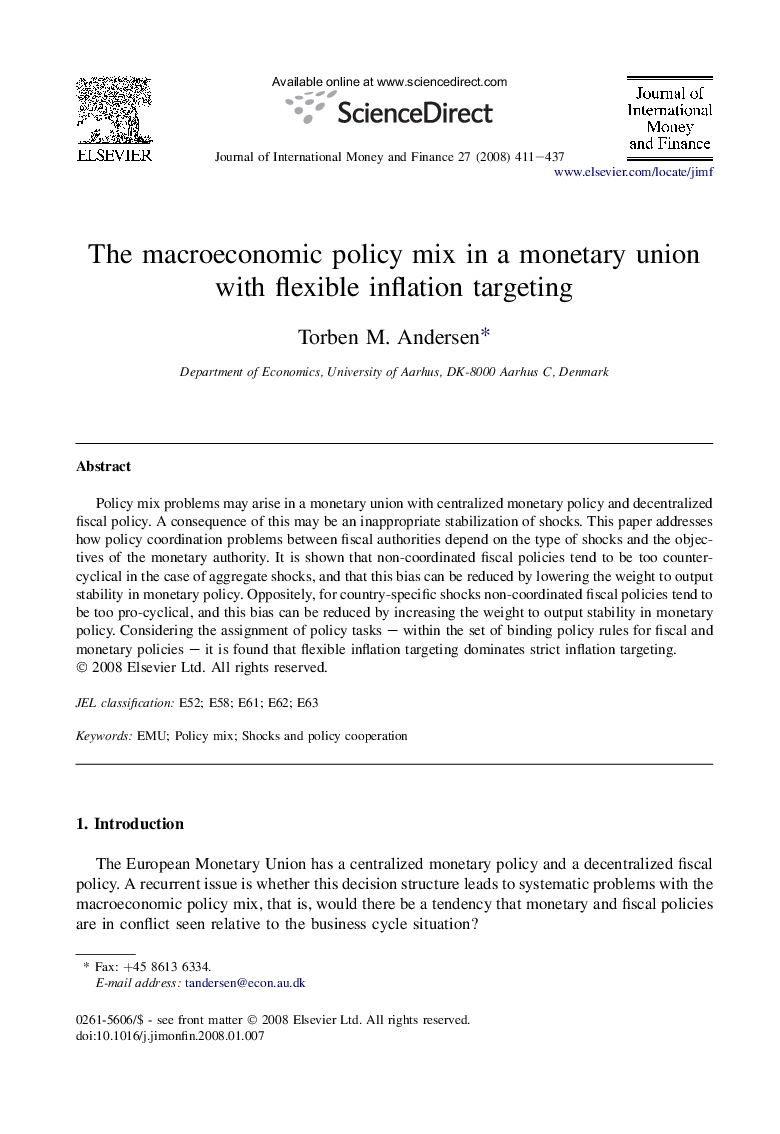| Article ID | Journal | Published Year | Pages | File Type |
|---|---|---|---|---|
| 964737 | Journal of International Money and Finance | 2008 | 27 Pages |
Policy mix problems may arise in a monetary union with centralized monetary policy and decentralized fiscal policy. A consequence of this may be an inappropriate stabilization of shocks. This paper addresses how policy coordination problems between fiscal authorities depend on the type of shocks and the objectives of the monetary authority. It is shown that non-coordinated fiscal policies tend to be too counter-cyclical in the case of aggregate shocks, and that this bias can be reduced by lowering the weight to output stability in monetary policy. Oppositely, for country-specific shocks non-coordinated fiscal policies tend to be too pro-cyclical, and this bias can be reduced by increasing the weight to output stability in monetary policy. Considering the assignment of policy tasks – within the set of binding policy rules for fiscal and monetary policies – it is found that flexible inflation targeting dominates strict inflation targeting.
